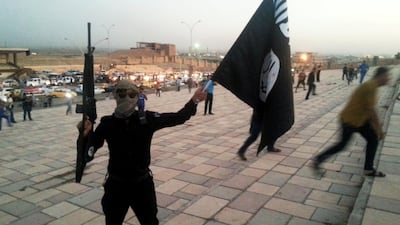Two ISIS suspects accused of being part of a cell that beheaded hostages in Syria should stand trial in the UK, a senior US military commander said on Monday.
Maj Gen Patrick Roberson is the highest-ranking official to have called on the UK to repatriate El Shafee Elsheikh and Alexanda Kotey, two alleged members of the ISIS execution squad that became known as the Beatles because of their British accents.
The pair were captured in January and are among hundreds of former ISIS militants from 40 countries held by the US-backed Syrian Defence Force. The SDF and Syrian officials want them to be repatriated by their home countries, but some western countries want them dealt with where they are held.
The UK has sought to have the two men tried in the United States. But Maj Gen Roberson, the commander of US special operations, told the BBC that the US was “working very hard to make sure that the countries of origin get these foreign terrorist fighters back into their custody”.
The British authorities stripped Elsheikh of his citizenship in 2014 before any criminal conviction for crimes linked to ISIS to prevent his return to the UK.
______________________
Read more:
Notorious UK hate preacher Anjem Choudary freed from prison
Terror suspect who fled Britain ‘executed’ in Somalia
______________________
The pair have been linked to the kidnappings of 27 people and the murders of three US and two British citizens, according to court papers. The Briton captured on ISIS beheading videos, Mohamed Emwazi, was killed in a drone strike in 2015.
Britain believes there would be a better chance of conviction if the two men stood trial in the US even though any American prosecution would rely on hundreds of pages of evidence from British police.
The move has proved controversial because the family of Elsheikh claims that Britain has abandoned its long-standing opposition to the death penalty to allow them to be tried in the US.
Elsheikh’s mother has challenged the decision to prevent her son being exposed to “inhuman” treatment in the US. Her legal team claims that Britain changed its position because of fears of harming relations with the Trump administration.

